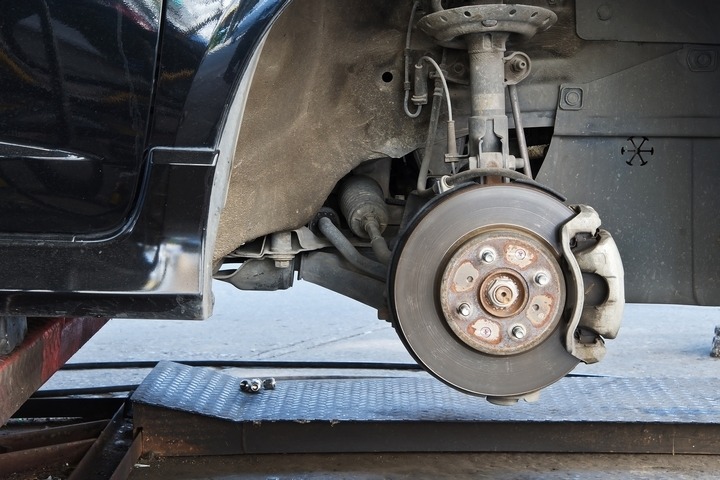Did you know that your driving habits have a direct impact on how long your brakes will last? Most vehicles cover as much as 32,186 to 112,654 kilometres before needing a brake replacement and this could be triggered from several factors and differ from car to car.
If you live in a place like Lagos with plenty of stop-and-go traffic, then you’re going to be using your brakes a lot compared to someone who resides in a rural area with little traffic.
Another thing that will affect how long your brakes last is the quality of your brake pads. The better the quality of your brake pads, the longer they will last.
Some factors might be completely out of your control but making a few adjustments in your driving habits and style will do two things – it will make you a safer driver and also help your brakes last longer. Let’s get right to it.
One Foot at a Time Please
You’ve probably seen a car accelerate with its brake lights on. This happens when a driver presses down the brake pedal while simultaneously pressing the gas pedal with his/er right foot.
Some drivers erroneously believe that using both feet to press down both the accelerator and the brake will improve the car’s response time. Sadly, this is not a safe thing to do. Rather, you run the risk of putting light and continuous pressure on the brake of your car as you drive. This is technically known as ‘brake riding.’
If you keep doing this while driving, you will end up wearing down the brake pads and warp the rotors. What you should do instead is to leave your left foot on the floor while you accelerate and brake with your right foot alone.
Fight the Temptation of Being a Speed Demon
We understand that the last thing you want to do when you are driving at high speed is to apply the brakes. However, the faster you are driving, the more energy and brake material your car will require to for your car’s braking system to stop the vehicle.
Car experts recommend that you travel within the prescribed speed limit and always leave for your destination in good time to avoid being in a rush. When you are in a rush, you tend to have the urge to drive faster.
Consider Engine Braking
Engine braking refers to the process of slowing down your car by gradually shifting your way down through the gears.
This strategy is more effective in cars with a manual transmission but you can also execute it with automatic transmission as well. By gradually shifting your car into a lower gear, you will help your vehicle decelerate whilst giving your brakes a rest.
It could be tempting to apply your brakes when you are driving down a long steep hill but you shouldn’t do this. Rather than pressing down on the brake pedal all the way down, this is when you should try ‘engine braking’ and let the engine do the work.
NOTE: You need to be cautious when ‘engine braking.’ Shifting at a really high speed or sumping to a gear that’s too low can damage your car’s engine and transmission.
Pay Attention to the Weight in Your Car
When you overload your vehicle, it has a way of eventually decreasing the lifespan of your brakes. The reason is simple – the heavier the car is, the more effort the brakes have to put in to bring the car to a stop.
This is why you should take out all unnecessary items and avoid putting more weight that the car can handle. The lighter the car is, the better and safer it will be on your brakes, gas tank, tyres and your wallet/purse.
Space Between Cars is Important
Most drivers do not like it when other drivers tailgate (drive too closely behind another vehicle). Your brakes don’t like it either because when you drive too closely to the car in front of you, you end up using pressing down on the brake pedal much harder and more frequently than you normally should. At the end of the day, this leads to wear and tear on your brakes.
Always ensure that there is sufficient space between your car and the car directly in front of you. It makes it easier to drive behind the car in front of you without wearing down your brakes.
When driving at night, you should increase the car-to-car distance to reduce the risk of being caught unawares.
Remember to Flush Your Brake Fluid
Flushing your brake fluid isn’t something you need to do frequently. According to industry standards, you need to flush your brake fluid every two years or per 40,233 kilometres.
Flushing your brake fluid is important because of the way the braking system works. By default, brake fluid attracts water and this lowers the boiling point of the brake fluid. This, in turn, cuts down your car’s braking performance.
Another thing that can happen is that the extra moisture could lead to internal corrosion, which paves way for the entire rot of the vehicle’s braking system
Final Thoughts
While driving, you should avoid coasting, which is the process of driving a car downhill with either the clutch depressed or the gear stick in neutral – or both at the same time. What this does is that your wheels are disengaged from the engine, meaning engine braking (using gears to slow down) is not possible.
While this might save you some fuel, it does real harm to the brakes of your vehicle.
